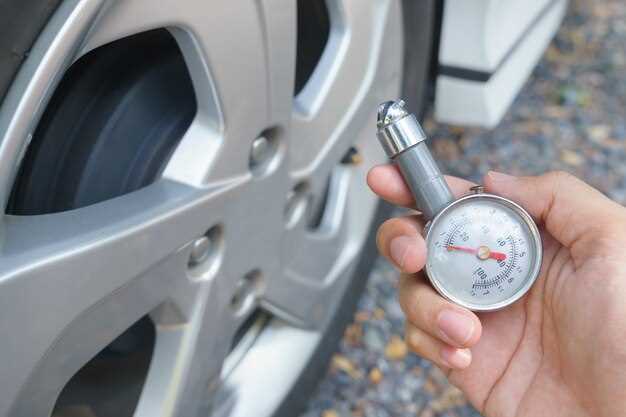Comparing Jeep SUVs by Fuel Efficiency


When it comes to choosing the perfect SUV, fuel efficiency is often a top priority for buyers. With a wide range of models available, Jeep has established itself as a leader in the SUV market. However, understanding the comparison of fuel efficiency across different Jeep models can be challenging. This article aims to provide prospective buyers with a comprehensive overview of Jeep SUVs’ fuel performance measured in miles per gallon (mpg).
In the world of SUVs, knowing the mpg ratings can significantly impact your decision-making process. Jeep has several models, each featuring unique specifications that lend themselves to varied fuel consumption levels. By evaluating these figures, buyers can make informed choices that align with their lifestyle and driving needs, whether it’s for daily commuting or off-road adventures.
This comparison will delve into the fuel efficiency ratings of popular Jeep SUVs, highlighting not only their mpg figures but also what those numbers mean in real-world driving scenarios. Join us as we navigate the landscape of Jeep vehicles to uncover the best options for buyers focused on maximizing their fuel efficiency while enjoying the ruggedness and versatility that Jeep is known for.
Understanding Jeep MPG: What Buyers Need to Know
When considering a Jeep SUV, understanding the vehicle’s mileage, measured in miles per gallon (MPG), is crucial for making an informed decision. MPG is a key metric that reflects fuel efficiency, influencing both operating costs and environmental impact. Buyers must recognize that different Jeep models provide varying MPG ratings, which can significantly affect your overall driving experience.
One of the main factors that influence Jeep MPG is the engine type and size. Traditionally, larger engines tend to consume more fuel, resulting in lower MPG ratings. However, with advancements in technology, newer models incorporate more efficient engines and hybrid options that offer improved fuel efficiency without sacrificing power. For potential buyers, reviewing the comparison of MPG across various Jeep models can help identify the best option suited to their driving needs.
Additionally, the type of terrain and driving conditions can impact how effectively a Jeep performs in terms of fuel consumption. Off-road driving typically results in lower MPG compared to highway driving due to the increased resistance and demands placed on the vehicle. Therefore, buyers should assess their typical driving situations when evaluating MPG ratings.
When comparing MPG across Jeep SUVs, it’s also essential to consider weight and aerodynamics. Heavier models generally use more fuel, while sleeker designs may achieve better efficiency. Buyers should consult the official EPA ratings for each model and gauge how these numbers relate to their intended use, whether for daily commuting, recreational activities, or off-roading adventures.
In summary, understanding Jeep MPG is vital for buyers seeking to balance performance and fuel efficiency. A thorough comparison of different models will help in making a more informed purchase, ensuring that you choose a Jeep that aligns with your preferences and lifestyle while being economically sustainable.
Comparing Fuel Consumption Across Different Jeep Models

When considering a Jeep SUV, one critical factor for buyers is fuel efficiency, measured in miles per gallon (mpg). Understanding the fuel consumption of various Jeep models helps potential owners make informed decisions based on their driving habits and needs.
The Jeep Wrangler, known for its off-road capabilities, has a fuel efficiency rating of approximately 17-25 mpg, depending on the engine choice and configuration. In contrast, the Jeep Grand Cherokee offers a more refined experience with a fuel consumption range of around 18-26 mpg. This comparison demonstrates that while the Grand Cherokee provides better mpg in certain configurations, the Wrangler excels in off-road performance despite slightly lower efficiency.
Another model to consider is the Jeep Cherokee, which features a 4-cylinder engine option that achieves an impressive 22-31 mpg. This makes it a strong contender for those prioritizing fuel economy without sacrificing versatility. Additionally, the Jeep Compass is slightly more efficient than the Cherokee in certain trims, boasting a range of 23-32 mpg, making it an excellent choice for budget-conscious buyers.
Ultimately, when choosing a Jeep, it’s essential to weigh the mpg figures against the intended use. The comparison of fuel consumption across different Jeep models reveals options that cater to both off-road enthusiasts and daily commuters, allowing buyers to find the right balance between performance and efficiency.
Tips for Maximizing Fuel Economy in Your Jeep SUV

To enhance the fuel efficiency of your Jeep SUV, consider regular maintenance. Keeping your engine tuned, replacing air filters, and ensuring your fuel system is clean can improve performance and gas mileage significantly.
Monitor your tire pressure regularly. Under-inflated tires create more friction and can reduce mpg. Make sure to keep them inflated to the manufacturer’s recommended levels for optimal fuel economy.
Drive smoothly and avoid aggressive acceleration and braking. Sudden changes in speed waste fuel. Instead, accelerate gradually and anticipate stops to maintain momentum, which helps in maximizing your Jeep’s fuel efficiency.
Reduce excess weight in your SUV. Remove any unnecessary items from your vehicle, as every extra pound requires more energy to move, therefore decreasing fuel economy. Consider roof racks or carriers only when necessary.
Utilize cruise control on highways. This function helps maintain a consistent speed, which can be more fuel-efficient than fluctuating speeds, leading to better mpg during long drives.
Plan your trips. Combining errands into one trip reduces the amount of time your engine spends idling. Also, minimize short trips, as they usually consume more fuel due to cold starts.
Keep windows closed at high speeds to reduce aerodynamic drag. Open windows can disturb the airflow around your Jeep, leading to decreased efficiency, particularly at highway speeds.
Lastly, consider modifying your driving habits, such as adopting eco-friendly driving techniques. Educating yourself about fuel-efficient driving can lead to smarter choices that directly influence your Jeep’s fuel consumption.
